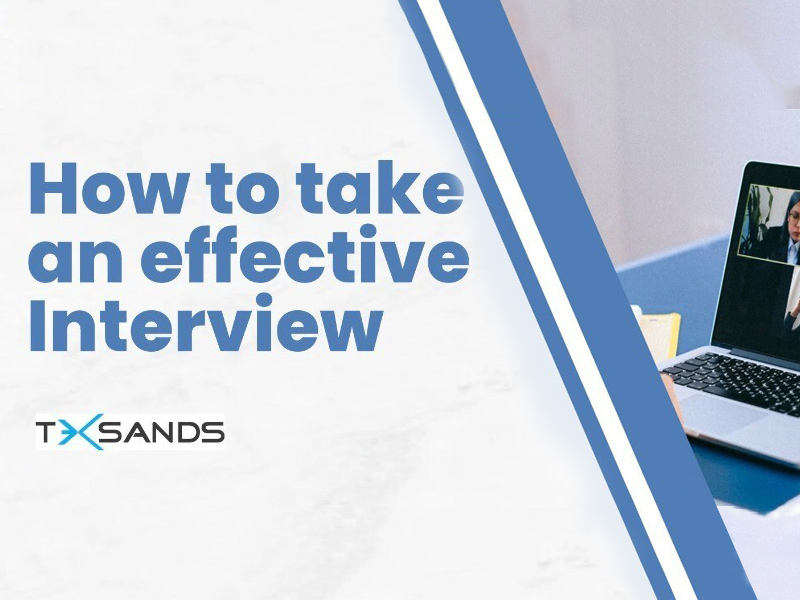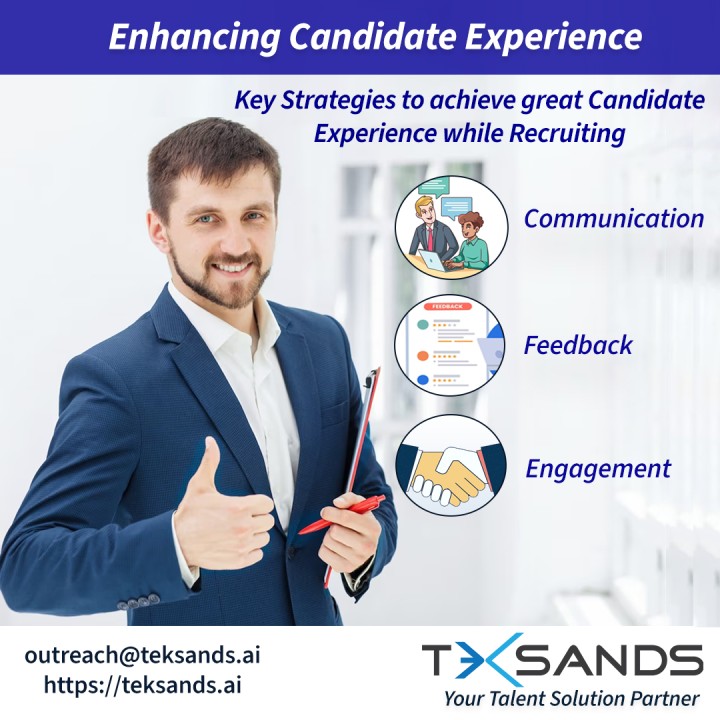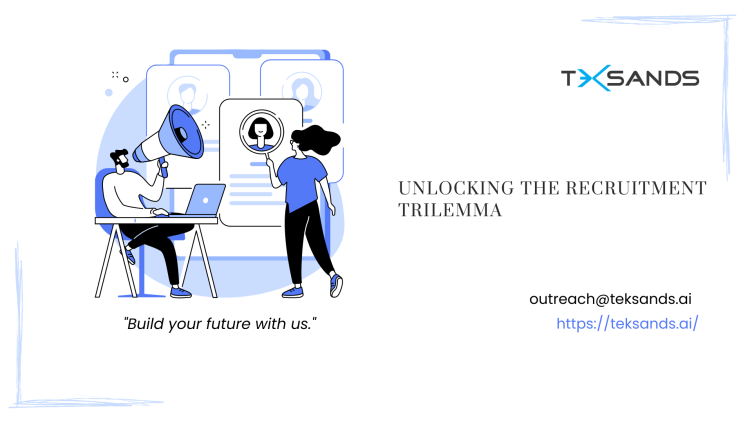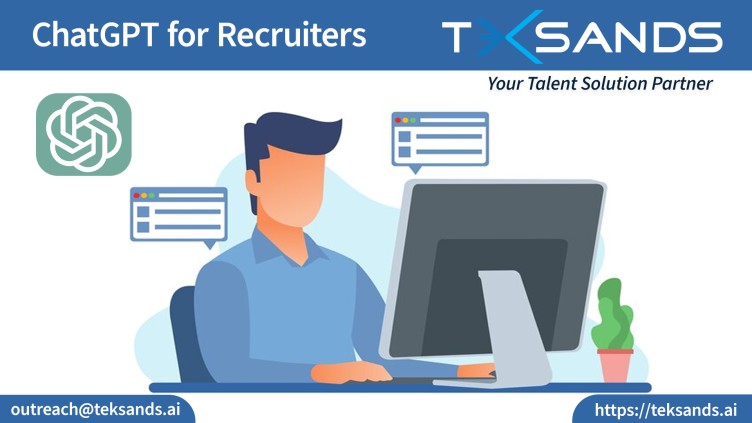
Tips on conducting an Effective Interview

Course Lessons
Introduction
Interviewing is not a profession, at least for most of us. However, as we grow in our experience, expertise, and maturity, our organisations entrust us with the responsibility of Interviewing. Realise it or not, it is an extremely critical part of our profession. Interviewers are literally responsible for the excellence level of the organisation, determining how competitive our organisations would be in the market. After all, it's the people that can make or break a company.
In my 25 years of experience in the Technology world, I have taken hundreds of interviews, observed countless interviews, and attended many as well. The following guidance on how to take an effective Interview is directly from my experience and my learnings from my peers and teams. These are also some of these best practices that we inculcate at Teksands.
Research on the Candidate
Before taking an interview, it is wise to do some research on the candidates, read through the CV in detail, look up the LinkedIn profile, find out evidence of extracurricular activities that the candidate may be involved in, such as contribution into GitHub, Kaggle, Stackoverflow, etc. You will be surprised that a 10 to 15 minutes of research will create a picture of the candidate in your mind. You will immediately know what kind of questions you need to ask during the interview, what aspects you would like to probe more, how much the candidate is aligned to the requirements of the position, whether the candidate is adaptable, and whether he or she can learn and much more. The ROI on a 10-minute research will actually be much more.
Pass on some Preparatory Material
The intent of the interview need not always be trying to get the candidate off guard and see how he/she fares. Sharing some preparatory material in advance or even sample question types will help in multiple ways. Firstly, it will help the candidate understand what's expected in the interview. In absence of this understanding, I have observed that candidates are often under or unprepared. Secondly, it will help filter out candidates who are not serious or whose skills are not in line with the skillsets expected. Thirdly, it will also help reflect the level of seriousness of the candidates during the interview. Candidates who have invested time to prepare themselves well are the ones whom you would like to consider well.
Ask about the candidate's understanding of the JD and company and his or her views on fitment
A good start can be by asking the candidate his or her understanding of the job requirements as well as why he/she thinks the organisation is a good fit for her and vice versa. This will bring out whether or not the candidate has researched and has given a good thought on the aspects of the job, whether or not they have evaluated it as the right fit given their career aspirations, and thought about cultural fitment between them and the organisation and so on. All of these reflect highly on the seriousness that the candidate brings to the table.
The Technical or Domain Skills Part
The Technical or Domain part of the questionnaire assesses the direct fitment of the candidate for the Job, however, it is not very straightforward. It would be a disaster for the organisation trying to find candidates with 100% skills match. You would lose out on great candidates. Remember that you are not recruiting the candidate for the current assignment only. You are bringing in the candidate for a career, you are bringing them in for the long term, during which they would perform a variety of roles. A candidate with 100% skill fit to the current job with very little learnability and adaptability will be a disaster for the organisation. A better approach would be to look for 60-70% fitment and assess learnability and adaptability.
One key aspect of Technical or Domain skills assessment is also that there must be a good mix of direct and application-based questions. For example, there must be coding-related questions for an IT skill like Java or Angular or Machine Learning, there must not only be conceptual questions but also application-based questions asking about how the candidate applied these technologies in real life.
Another good approach is to gradually go to higher-order questions and see the depth of the person's competency in those skill areas.
That brings us to the next point of assessing Learnability and Adaptability.
Assessment of Adaptability and Continuous Learning
A simple but effective question is "What new skills did you learn in the last year?" or "How do you keep yourself updated on the market?", or "Give an example wherein you have been given a challenge or a problem to solve for which you did not have the skills, how did you solve the situation?". Try to bring out evidence of what they have done to keep a continuous learning habit, going beyond their skill zone and seeking out newer challenges and solving them. Questions in this regard must be evidence and example based rather than theoretical.
Clarity on Career progression
Ask the candidate how he or she wants to progress their career further. Understand what their 5-year and 10-year horizon plans are. There are cliched questions and countless memes in this regard, but still, this is an essential one. Candidates must have clarity on how they plan to progress in their careers. It would be difficult to assess the tangible details of that plan. Look for clarity of thoughts and their approach to their career. Technologies change, markets change, and job roles evolve, hence a 10-year plan may not hold valid for individuals. But the approach and clarity are what you should be looking for.
Going Beyond their job roles - Innovation, Continuous Improvement
Look for evidence on how they approach their job in terms of making it easier for themselves and saving costs for the organisation. Ask for improvement initiatives they have undertaken, and innovations they have developed. Find out clues on how they solve problems.
Values (Respect, Collaboration, Service Attitude)
Ask about how they perceive their current or past organisation and understand values such as respect for others, other people, and the organisation as they speak about them. Ask questions on how he or she helps others in the team in solving challenges or teaching them a new thing, or for that matter, helps juniors in the team with their knowledge and guidance. Ask them to talk about interpersonal challenges they faced, and how they solved them. Ask on their opinions on their current or past co-workers and managers and assess how they reflect. Indications of key values would come out of some of these questions.
Talk about your Organisation
A little sales talk about your organisation is important. You must share the vision and culture of your organisation, share positive stories about people engagement and work environment, share how your organisation values people, and their development and at the same time keep an aggressive focus on excellence and market. Talk about your organisation's work in society and how it engages itself with people at large.
Let the candidate ask questions
Finally, keep some time reserved for the candidate to ask questions. A well-prepared candidate would ask smart questions about work, skills, development, policies, culture, and people in the organisation. You must keep yourself ready to answer these questions with good examples or stories. Good stories go a long way in convincing a potential candidate.
Some "Don'ts" for the Interviewers
Interviewer Boasting
I have come across a lot of interviewers who would like to boast about themselves to the candidates using the position they are in at the Interview. This conveys a negative image of the organisation to the candidate and also wastes precious Interview time. The sole aim of the interview must be to assess the candidate objectively by applying the parameters that are important for the role and the organisation, and nothing else. Do not get carried away to prove yourself or your knowledge. Believe me, it's a natural tendency and I have seen it enough. It happens frequently. Please refrain.
Don't be afraid of hiring candidates who are better than you
Interviewers who are probably the hiring managers in the context of the interview, often get worried about hiring candidates who are better than themselves. The worry is about losing control, or credibility. It's an unfounded worry. Such a candidate will uplift your team and thereby uplift your performance at the end of the day. You will help in elevating your team's performance level by hiring such candidates.
The Decision
While the above is the process, the most important part is the Hiring decisions post the interview. The decision has to be objective. There may be a great candidate but not fully fit for the work at hand that the position will entail. At the same time, there is a not-so-great candidate with skills almost fitting exactly to the requirements. The decision has to be balanced between the near-term requirement and the long-term view. Apply parameters objectively, they should be a mix of Technical or Domain Skills, Values, and Learnability/Adaptability to arrive at the final decision. Compare candidates against all parameters. If needed assign weights to the Parameters in questions and score the candidates. Intuition is great, but a quantitative approach can produce the right results more often.










